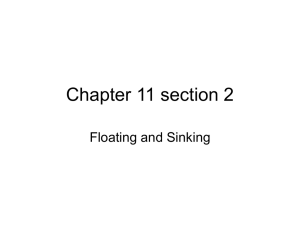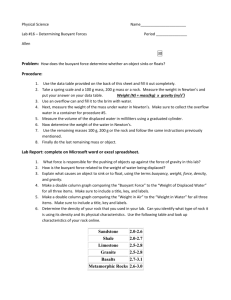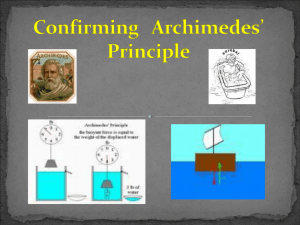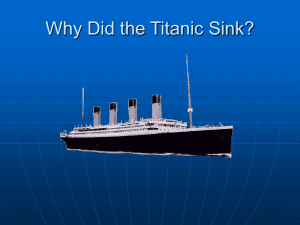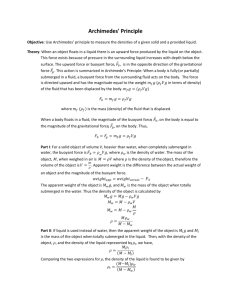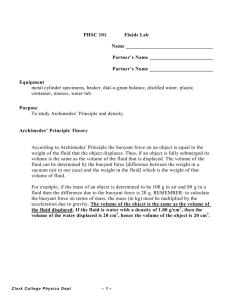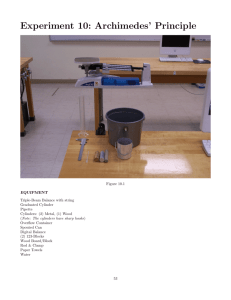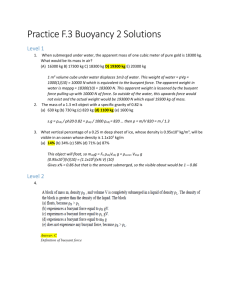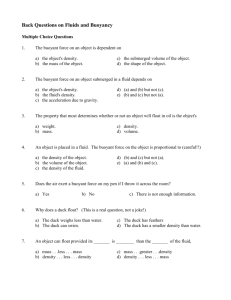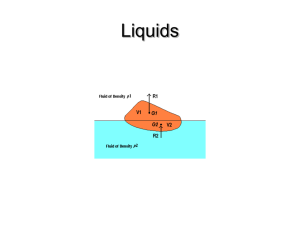Review
advertisement
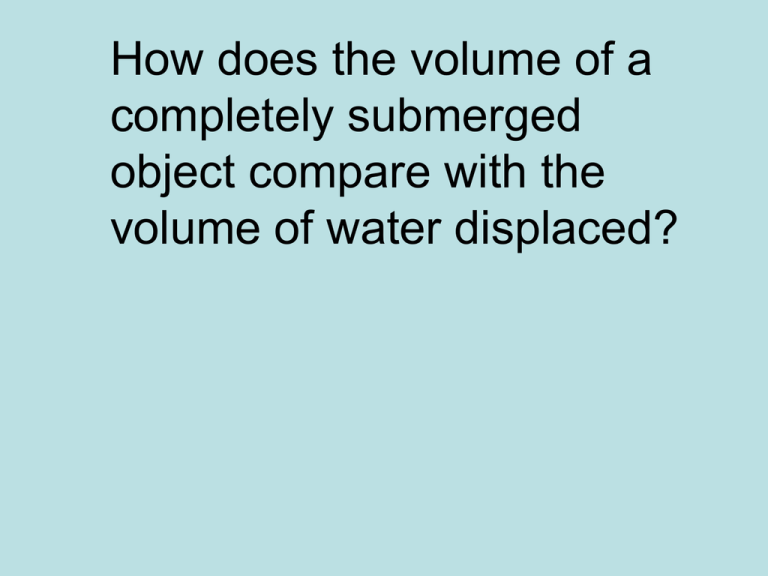
How does the volume of a completely submerged object compare with the volume of water displaced? They are the same What is the mass of 1 liter of water in kilograms? What is its weight in newtons? 1 kg 10 N When the buoyant force on a submerged object is less than the weight of the object, how do the densities of the object and water compare? The density of the object is greater then the density of water. The buoyant force is always equal to the ______________. For the special case of floating the buoyant force is also equal to the ________________. The buoyant force is always equal to the weight of the fluid displaced. For the special case of floating the buoyant force is also equal to the weight of the floating object. A 1 kg block of iron and a 1 kg block of aluminum are submerged in water. Upon which does the greater buoyant force act? More on the aluminum because the volume is greater. Find the Buoyant Force and the Net force for each of the three scenarios below. A)BF= 7N Net Force = 0N B)BF = 10N Net Force = 80N down C)BF= 10N Net Force = 3N up A block of wood with the dimensions of 2.5 cm x 1.0 cm x 6.5 cm has a density of 0.8 g/cm3. What is the buoyant force on this block of wood when it is floating in water? 0.13 N • If all the taconite falls out of one of the ships on Lake Superior will the water level of Lake Superior rise, fall or remain the same? WHY? • If instead, the ship was filled with Styrofoam and then it all went overboard – will the water level rise, fall or remain the same? WHY? • Fall. When in the ship the taconites mass is being displaced and when it sinks only its volume is being displaced in the lake. Taconite is more dense than water so its mass is greater than its volume. • Stay the same – in both cases the Styrofoam floats. How does the waterline of this ship change when it is loaded with 55,500 metric tons of iron ore. (there are 1000 kg in one metric ton). The ship is 306 m long and 32 m wide. Waterline changes by 5.7 meters!
